Posted on 12/21/2017
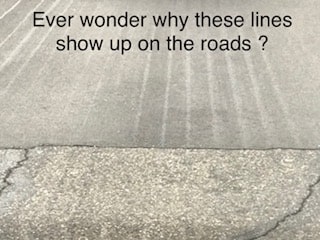
“Have you ever wondered ” why are there lines on the road?” The city does an anti-icing, pretreatment and de-icing. So, when you see the lines know that there is possible snow or an ice storm coming up.t • Pre-treatment – A form of anti-icing where chemicals are applied to the road up to 48 hours before a winter storm to prevent a bond from forming between the pavement and the snow and ice when the storm starts. WHEN AND WHERE WILL VDOT(Virginia Department of Transportaion) USE ANTI-ICING? VDOT may use anti-icing when snow or an ice storm is predicted and when pavement temperatures are above 20 degrees Fahrenheit. Anticipated temperature and type of precipitation at the start of a storm will determine its use. VDOT’s anti-icing program covers at least 200 miles of roads in each of its nine districts. VDOT also deploys anti-icing crews to major bridges, overpasses and areas prone to freezing to keep ice from forming. WHAT SHOULD I DO IF ... read more
Posted on 12/19/2017
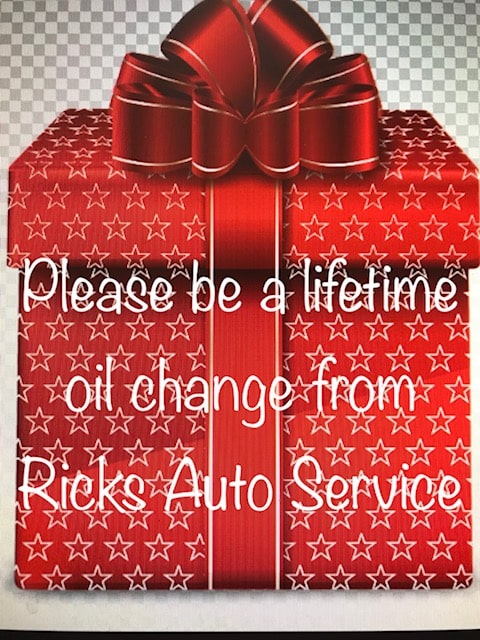
Are you looking for a Last Minute Christmas Gift? Do you have that one person who always is the hardest to buy for (or you want to do something special for yourself)? Look no further, buy them our Lifetime Oil Change, It’s Your lifetime not the lifetime of the vehicle, no matter how often you change vehicles. There is a $5.00 disposal cost fee. If you upgrade to full synthetic you just pay the difference. So it really is a win/win you are able to keep up on your maintenance (by our reminders). We also do: Oil and Filter changes using only top-tier, OEM quality products on your vehicle at our recommended service intervals, up to 5 oil changes per year. Multi-point vehicle inspection. 5% Discount on Labor for all future services on that vehicle. Maintenance service reminders Free service loaner vehicles Don’t forget our 36,000 mile 3 year labor and parts warranty. Our goal is to keep all the vehicles we see running for as long as their owners would like. If ... read more
Posted on 12/13/2017
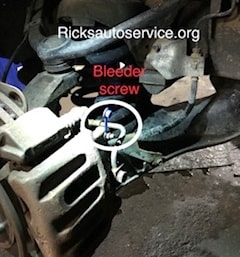
We’ve been asked “Is Brake Flushing really necessary?” Braking systems don’t last forever. Parts, like the rubber in the master cylinder valves, calipers and wheel cylinders deteriorate. Those pieces flake off and end up in your brake fluid. Because of every day wear and tear the fluid gets old and worn out. And, moisture in the system leads to rust, which leads to more nasty bits in your brake fluid. All this adds up to a brake system that has compromised effectiveness and decreased stopping power. A good rule of thumb is to have your brakes flushed about every 30,000 miles or so. If when driving you notice your vehicle has decreased it’s stopping power, have it inspected way sooner than later, just to be on the safe side. The picture above is where the technician bleeds the brake line to get all the air out of the system. #Brakeflush #BrakeSystem #Maintenance
Posted on 12/12/2017

1. Have a spa day. Whether it’s before you go- or after you get to your destination (I prefer after) especially if I know it will be especially stressful. Don’t forget to still exercise, yoga, or walking to optimize your time 2. Book travel at smart times. Consider booking your flight, (Tuesday, Wednesday and Thursdays) train or driving times during non-peak times. 3. Speaking of transportation … rather than relying on public transportation, why not get a good friend or family member to drive you to the airport instead? It might relax you, knowing that you’re in good hands and that you can talk up a storm with a friend- taking your mind off that leg of the trip. 4. Don’t overbook your itinerary. You run ... read more
Posted on 12/5/2017
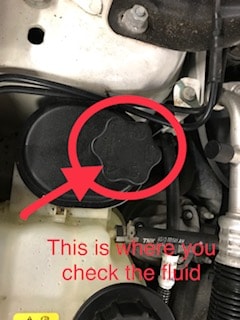
"Why do I need to do flushes on my car?" "Do I need to change Power Steering Fluid?" Over miles and time, small amounts of wear products will build up in your #Power Steering Fluid. These wear products are bits of plastic, rubber and metal from inside the system that naturally wear off over time. As these particles are pushed around in the power steering fluid, they can accelerate wear to many of the seals on components in the system. Since there is no filter in your power steering system, the only way to remove these small particles is to remove the power steering fluid and add new, clean fluid. This is called flushing the Power Steering System. When doing the flush, we also inspect the seals and hoses for leaks, as the system ages it’s possible to begin slow leak, or seals wear down, dry or crack. The power steering system in your veh ... read more
Posted on 11/28/2017
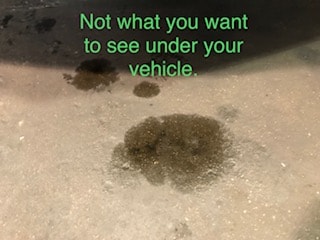
Be proactive when you see leaking fluids coming from your vehicle. When you see something:Types of leaks can be: engine oil, engine coolant,transmission fluid, brake fluid washer fluid,Gasoline and more.Some leaks occur while driving, some whilesitting and sometimes during both.Some leaks are common and some are rare.You can often identify your leak by the color,consistency, smell and location.Most common leak? Engine oil.When engine oil is new, it has a yellow golden color,while older oil can be dark brown to black. If you noticethis type of fluid leak, check your oil immediately toprevent major engine damage.
Posted on 11/27/2017
.jpg)
10 Simple ways to get your car ready for winter. 1.Get the right kind of oil change. Oil tends to thicken as it gets colder, if to thick it won’t do the best job of keeping your engine lubricated. Check your cars’ manual. 2.Make sure you can see. Change your blades at least once a year. 3.Give your battery a little TLC. If battery is over three years old, bring it in so we can test it’s ability to hold a charge. Check posts and make sure battery is corrosion free. 4.Examine your belts and hoses. When you come in for an oil change we check all of these. 5.Check your tire pressure. Tires must be inflated properly to ensure best traction. Again, check your manual for optimum tire pressure. 6.Snow tires or all season tires. Depends on the area you live in. Check with your Service Maintenance Shop. 7.4-Wheel drive? Your system should be checked to insure it’s running properly. 8.Get the antifreeze mixture right. Aim for 50/50 mix of antifreeze(coolant) and wa ... read more
Posted on 11/24/2017
.jpg)
Flushing and replacing brake fluid might cost $100 or less on many vehicles, but replacing rusted brake lines and other parts can run several hundreds of dollars, so there is value in keeping the fluid maintained. As we’ve said in the past about maintenance, it’s well worth the effort. In the Braking system itself, there are parts, like the rubber in the valves in the master cylinder, calipers and wheel cylinders deteriorate. When that happens nasty little bits of that flake off and end up in your brake fluid. The fluid becomes old and worn out, moisture gets into the system which leads to rust, adding more nasty bits in your brake fluid. Letting it get dirty and you won’t be stopping as well. A good rule of thumb is to have your brakes flushed about every 30,000 miles or so. Note, brake flushing and bleeding are two different procedures. Brake flushing involves removing all the brake fluid from the system and getting all-new, clean fluid inside. Brake bleedin ... read more
Posted on 11/21/2017
.jpg)
CAR TROUBLE, please have it checked out immediately. When you do that you will be able to prevent any huge damage to your car. There is a reason why the safety system in your car is installed. The system is there to inform you of any problems of mechanical failures your car is having. CAR REPAIR and MAINTENANCE is important. By following preventive maintenance measures, you are able to save time, effort and money. Getting your Engine checked regularly, it’s good to remember that the engine is the heart of the car; busted engine, your car is useless. Don’t forget your transmission, otherwise you may stuck somewhere you would rather not be! Brakes should also be part of your basic car maintenance, remember maintenance of your brakes is an important safety reasons. Low brake fluid levels can cause soft brake pedals. Regular Mechanical inspection should be done and not just a visual inspection of your vehicle, since many components of your car cannot be inspected visually ... read more
Posted on 11/16/2017
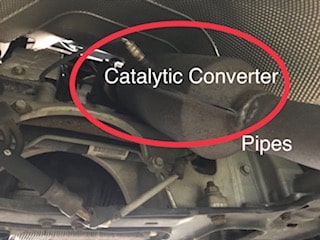
EXHAUST SYSTEM What is it? There are no moving parts, but your exhaust system is one of hardest worked parts on the car. It is a series of pipes linking the engine to a muffler and a catalytic converter which performs the following functions; Controls noise. Directs poisonous gases produced in your engine away from you and your passengers and safely out the tailpipe. A poorly functioning exhaust system means lower fuel efficiency, decreased power, and could even lead to costly damage down the line. A malfunctioning exhaust system could mean that those toxic emissions are being piped into your vehicle, where they can do serious damage to your health. Here are some symptoms of a bad or failing exhaust: 1.Excessively noisy engine, one of the first symptoms, it’s a hissing or tapping sound coming from the engine. It may be more pronounced during a cold start. 2.Decrease in power, acceleration, and fuel efficiency-the decreased performance may be minor at first b ... read more